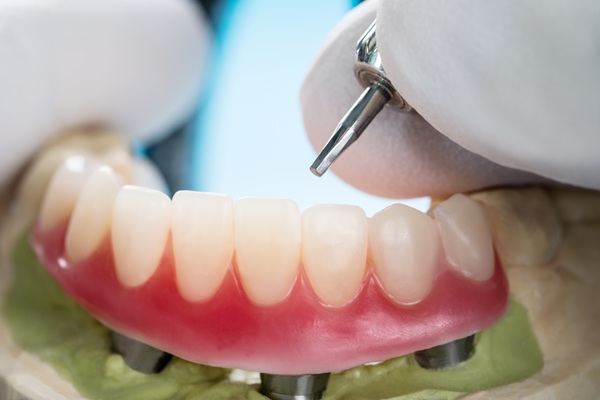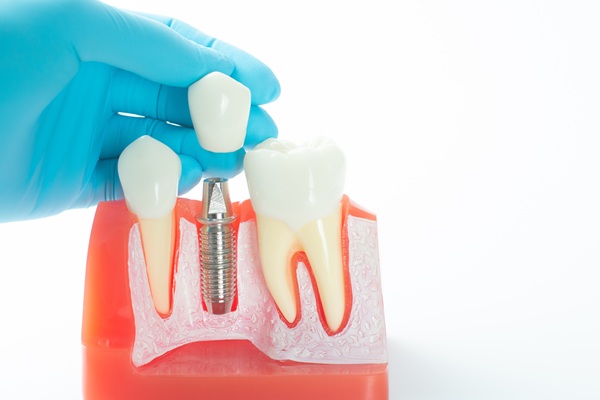 Hormonal changes are natural and required for healthy physiological function. However, certain hormonal changes may negatively affect gum health by raising the risk of receding gums and gum disease. Restorative dentistry procedures may help you get your gums back in shape and repair your teeth. It is especially essential to maintain excellent dental hygiene practices during times of hormonal fluctuation. This article focuses on a few of these typical hormonal shifts and how they influence gum health.
Hormonal changes are natural and required for healthy physiological function. However, certain hormonal changes may negatively affect gum health by raising the risk of receding gums and gum disease. Restorative dentistry procedures may help you get your gums back in shape and repair your teeth. It is especially essential to maintain excellent dental hygiene practices during times of hormonal fluctuation. This article focuses on a few of these typical hormonal shifts and how they influence gum health.
Understanding hormonal changes
Hormones are biological chemicals that regulate physiological processes and behavior. Hormones vary naturally to suit the body's requirements during stressful periods, puberty, or pregnancy.
Although hormonal changes are a normal part of life, an increased risk of gum recession and disease is possible as one of the potential adverse effects. Hormonal changes may raise the risk of gum disease for two reasons: they influence how the body reacts to toxins produced by plaque accumulation and how blood supply to the gum tissues is affected.
Hormonal changes that affect gum health
Hormonal changes seem to make women more susceptible to gum-related issues. The reason is that a woman's reproductive cycle leads her to go through monthly hormonal changes. Other hormonal changes that may put the gums at risk include:
Puberty: Males and females both go through puberty, which produces significant hormonal changes. Hormones may affect how the gums react to infection and boost blood flow to the gum tissues. Therefore, certain people may develop gum disease, which manifests as swollen, red gums, recession, or bleeding while brushing and flossing.
Pregnancy: Although severe hormonal changes are necessary for embryonic development, they may raise the mother's risk of gum disease. During the second and third trimesters, pregnant women are most susceptible to gum-related issues and should be consistent with dental hygiene to preserve their gums.
Menstruation: During and shortly before a woman's menstrual cycle, some hormone levels rise. Progesterone levels typically rise around this time, causing the gums to swell and bleed. The salivary glands may also swell, resulting in decreased saliva production and a higher susceptibility to gum recession.
Menopause: During menopause, women's bodies may have trouble balancing estrogen and progesterone levels. Consequently, many menopausal women suffer from dry mouth. The salivary glands do not produce enough saliva in those who have dry mouths. Food remnants on the teeth and gums may lead to gum disease and tooth decay.
Taking birth control pills: Progesterone levels in a woman's body may be raised by taking birth control pills. Increased progesterone levels may increase blood flow to the gums, leading to gum inflammation, recession, and gum disease.
Final note
Due to the hormonal imbalances caused by the stages highlighted above, patients must pay special attention to their dental health. If hormonal fluctuations are not carefully monitored, they may cause irreversible harm to the smile. It begins with increasing awareness of the connection between hormonal changes and dental health issues. Please do not hesitate to contact the dental office if you have any concerns or want guidance on further safeguarding oral health against receding gums.
Request an appointment or call Rafael E. Cordero, DDS PA at 561-763-9221 for an appointment in our Palm Beach Gardens office.
Recent Posts
A robust oral hygiene routine serves as the foundation for a healthy smile and gum disease prevention. When plaque and tartar accumulate along the gumline, the risk of periodontal issues increases significantly. Simple daily habits, combined with professional guidance, can significantly reduce the likelihood of gum inflammation and more serious periodontal complications. Here are simple,…
When we go to the dentist or periodontist, one of the last things that we expect to hear is that we need gum recession treatment. However, gum recession happens to many people for many reasons. When it does happen, it is important to get it treated properly as soon as possible to avoid further damage.…
Concerned about gum recession? Read on to learn more. If your smile looks different in the mirror recently, you might want to see a periodontist. You may notice your tooth roots are showing more, your teeth seem longer, or your gums are receding. Perhaps your gums are becoming more tender and your teeth are more…


